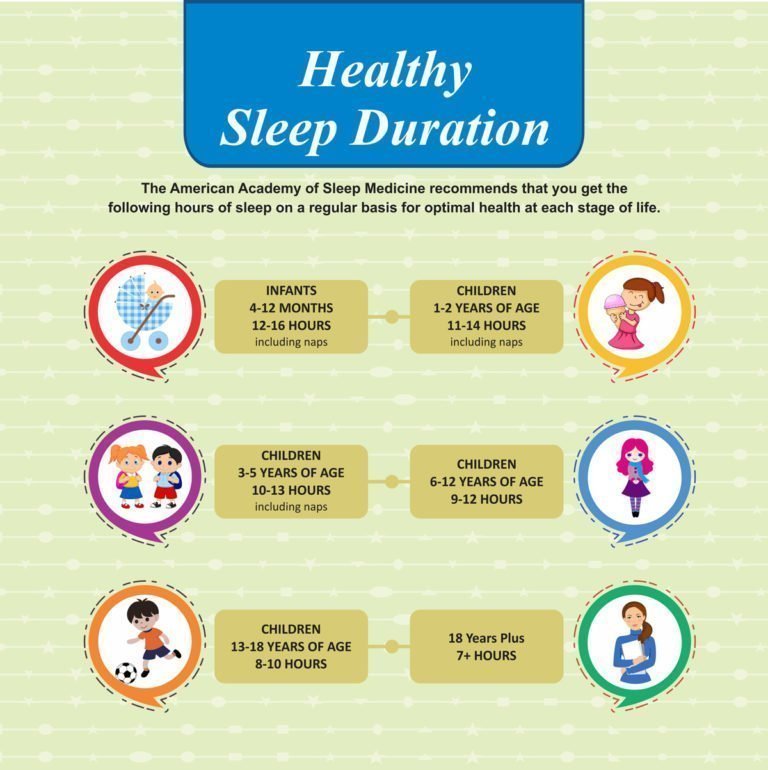
Overview of Sleep Disorders in Children
Sleep is a vital component of a child’s growth and development. Unfortunately, sleep disorders in children are common and can significantly affect their physical health, emotional well-being, and cognitive functioning. From difficulty falling asleep to frequent nighttime awakenings, these disorders can disrupt a child’s life and the family’s routine. Sleep problems are poorly recognized by parents and doctors and requires more awareness.
This section provides an overview of common sleep disorders in children with an emphasis on the importance of sleep hygiene. Specific sleep disorders are dealt in the subsections.
Importance of sleep in humans?
Sleep is no less important than food, drink, or safety in the lives of our children.
- Sleep is required for enhanced tissue growth and repair in our body. Sleep also takes part in restoration of brain tissue.
- Sleep may function to conserve energy as the metabolic rates has been 10% of that during the day.
- Sleep has an important role in learning and memory: retention of new information, encoding and consolidation of memory. Sleep is necessary to dissolve the storage of information that is not necessary
Adequate duration of sleep for children
American Academy of Sleep Medicine has recommended healthy sleep duration depending on the age. These are shown in the Image.
What is a healthy sleep?
- Healthy Sleep means falling asleep quickly, staying asleep through the night, rising without much trouble each morning, not feeling drowsy during the day
- Sleep hygiene is a variety of different practices and habits that are necessary to have good night-time sleep quality and full daytime alertness.
Steps to improve sleep hygiene in children
- Age appropriate bedtimes & waketimes with consistency and sufficient duration
- Brief calming Bed time short routines like bath, massage, storytelling improve sleep outcomes especially in infants and pre-school children
- Bed room reserved for sleeping only. Should be dark, cool, and quiet
- Electronics should be kept out of children’s bedrooms to limit access
- Good physical activity in day
Common Types of Sleep Disorders in Children
Insomnia:
- Difficulty falling asleep, staying asleep, or waking up too early.
- Often related to stress, anxiety, or irregular sleep schedules.
Obstructive Sleep Apnea (OSA):
- Characterized by pauses in breathing due to airway obstruction, commonly caused by enlarged adenoids or tonsils.
- Symptoms include loud snoring, restless sleep, and daytime fatigue.
Restless Legs Syndrome (RLS):
- An urge to move the legs, often accompanied by discomfort, disrupting sleep.
- Linked to iron deficiency or genetic predisposition.
Parasomnias:
- Includes sleepwalking, night terrors, and confusional arousals.
- More common in younger children and often resolves as they grow older.<
Delayed Sleep-Wake Phase Disorder (DSWPD):
- A circadian rhythm disorder where the child’s sleep pattern is significantly delayed, leading to late bedtimes and difficulty waking up.
Behavioral Sleep Problems:
- Resistance to bedtime, reliance on parental presence to fall asleep, or prolonged nighttime awakenings.
Sleep Disorders in children
Related Video
Frequently Asked Questions (FAQs)
1. What are the most common sleep disorders in children?
Common sleep disorders include insomnia, sleep apnea, parasomnias, and restless legs syndrome.
2. How can I improve my child’s sleep hygiene?
Ensure a consistent sleep schedule, limit screen time before bed, and create a quiet, comfortable sleep environment.
3. How are parasomnias diagnosed?
Symptoms include loud snoring, gasping during sleep, restless sleep, and excessive daytime fatigue.
4. Are sleep disorders in children treatable?
Yes, most sleep disorders can be effectively managed with behavioral changes, medical treatment, or a combination of both.
5. What is a sleep study, and when is it needed?
A sleep study monitors breathing, brain activity, and movement during sleep to diagnose conditions like Sleep Apnea. It’s recommended for persistent or severe sleep disorders.



